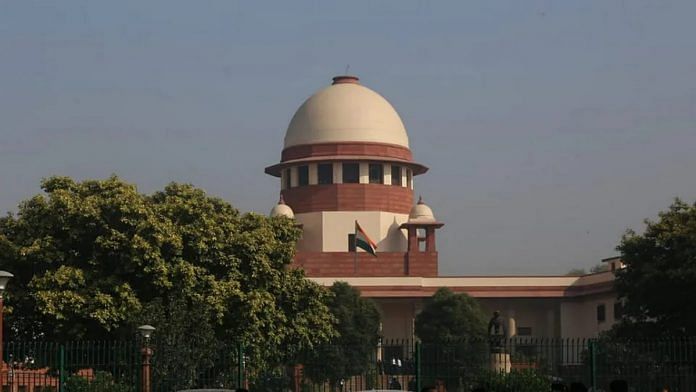In a landmark decision, a five-judge Constitution bench of the Supreme Court unanimously upheld the Centre’s decision to abrogate Article 370, which bestowed special status on the erstwhile state of Jammu and Kashmir. Chief Justice of India DY Chandrachud said that the provision was a temporary measure meant to ensure the former state’s integration into India.
The court’s judgment raises significant concerns for India’s federal structure and marks a watershed moment in the country’s constitutional history. It dilutes the power of the states and fortifies the Union’s authority beyond constitutional imagination. In the words of eminent jurist Fali Nariman, the right process would have been for Parliament to remove the provisions of Article 370 through a constitutional amendment under Article 368, which allows Parliament to amend each and every article.
Roots of Article 370
After J&K’s accession to India, the bench said in its main judgment, the state did not retain “any element of internal sovereignty”. The existence of a separate Constitution and special privileges provided to J&K were a mere feature of “asymmetric federalism”, it held. There was no prima facie case that the presidential orders of 2019 that stripped J&K of its special status “were mala fide or an extraneous exercise of power”. The Supreme Court also directed the Centre to restore J&K’s statehood and to hold legislative assembly elections by 30 September 2024.
Article 370 was the foundation of the constitutional ties between J&K and the Centre. Introduced as a temporary provision and previously understood by the Supreme Court as acquiring permanent status in the constitutional framework, it was revoked in 2019. J&K was the only Indian state with a separate Constitution. Apart from defence, foreign affairs, finance and communications, the application of all other laws required the state’s concurrence.
Article 370 found its way into the Constitution for many reasons. According to Gopalaswami Ayyangar, the chief drafter of Article 370, J&K wasn’t ready for immediate integration. Article 35-A, then, was introduced as a temporary provision, allowing J&K’s legislative assembly to define the state’s permanent residents and bestow special rights and privileges on them.
Unlike the US, India is not a true federation. KC Wheare, a prominent British scholar, describes India as ‘quasi-federal’, which means the country’s Constitution has a centralising tendency. The erstwhile state of J&K was not the only one to be provided special constitutional privileges. The Constitution has special provisions for other states as well, like Assam, Manipur, Andhra Pradesh, Sikkim, Mizoram, Arunachal Pradesh, and Goa. The federal structure of India has some asymmetric features, in terms of varying degrees of autonomy accorded to states, to accommodate diversity.
Also read:
How much power does the Centre have?
The Supreme Court affirmed that federalism and democracy are part of the basic structure of the Constitution. However, its verdict undermined these core constitutional values to some extent and avoided answering several crucial questions. One such question was about the true nature of powers conferred on the Parliament under Article 3 of the Constitution. The petitioners arguing against the abrogation said that Article 3 does not give Parliament the authority to unilaterally “downgrade” a state to a Union territory.
If at all, ‘statehood’ could be extinguished at will, then our idea of federalism would be rendered meaningless. The Supreme Court, while stating that federalism is part of the basic structure of the Constitution, completely avoided answering the question of whether the Parliament can unilaterally alter the character of statehood by converting a state into a Union territory. Thus, a shadow of uncertainty was cast on our understanding of statehood, leaving it open to questions.
Furthermore, the petitioners argued that in a federal democracy, the right to autonomous self-government is a fundamental right, which cannot be taken away without due procedure established by law. However, the Court framed the issue in a manner that addressed the interpretation of Article 3 and not its impact on the democratic principles enshrined in our Constitution. The court held that the procedure under Article 3 was followed by the Union Parliament and there was no violation of constitutional procedure. The reason being that at the time, J&K was under president’s rule and the consultation with the Union Parliament was in accordance with the requirements of Article 3. This indicates that people of the state have no say in the downgrading of their ‘statehood’ to that of a union territory, leading to a dilution of our understanding of democracy.
Justice Sanjay Kishan Kaul in his epilogue recommended setting up a ‘Truth and Reconciliation Commission’ to investigate and report on the human rights violations carried out by both state and non-state actors in the Kashmir valley since the 1980s. This is a welcome move, but it is yet to be seen how it would unfold in reality.
The Supreme Court’s decision to uphold the abrogation of Article 370 is nevertheless a historic one, putting an end to decades of debate and controversy around the former state’s special status. The court’s decision to restore J&K’s statehood is also a welcome move. It is being considered a ‘beacon of hope’ and a declaration of progress and unity in the region. Although it might appear to some that the court refrained from confronting the executive on controversial political issues, Fali Nariman strongly disagrees. In his words, things would have been better if they had gone with a different approach.
The author is a legal academician and assistant professor of Constitutional law at O.P. Jindal Global University. Views are personal.
(Edited by Zoya Bhatti)



